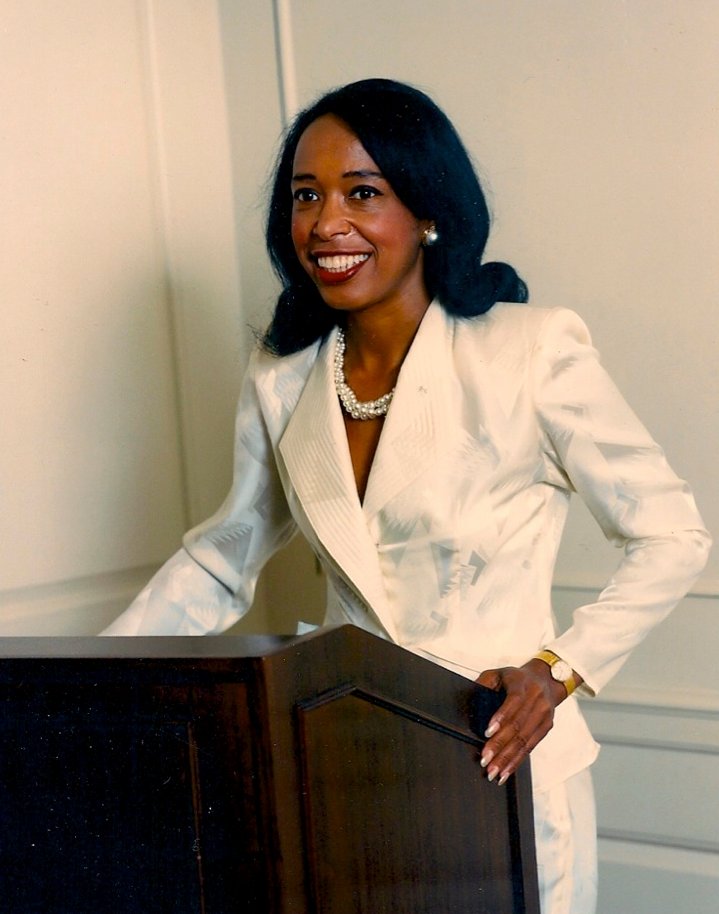by Sebastian Castro
On March 5, the late Dr. Patricia Bath was inducted into the National Women’s Hall of Fame. Her daughter, Dr. Eraka Bath, accepted the award on her behalf.
The National Women’s Hall of Fame is a nonprofit organization and museum, “dedicated to honoring and celebrating the achievements of distinguished American women,” according to their website. Fellow inductees this year included tennis champion Serena Williams, scholastic pioneer Kimberlé Crenshaw, and educational innovator Peggy McIntosh. 2024 was the first year the induction ceremony was held in New York City and televised on the Oprah Winfrey Network.
Dr. Patricia Bath was an ophthalmologist and laser scientist whose work as a researcher and advocate for blindness prevention and treatment changed the field of eye care forever.
Dr. Patricia Bath passed away in 2019 at the age of 76. She was a pioneer in the medical field, being the first Black female doctor to receive a medical patent for the Laserphaco Probe in 1988, a revolutionary device that removes cataracts and is still utilized in hospitals around the world. In 1974, she became not only the first Black woman, but also the first woman to be appointed to the faculty of UCLA’s Jules Stein Eye Institute’s Department of Ophthalmology.
Dr. Patricia Bath focused her career on equitably treating preventable blindness, an issue that statistically affects the African American community significantly more.
“We think about structures and how structures can dictate health outcomes,” Dr. Eraka Bath said. “Structural inequity and deprivation of resources is something that has shaped our healthcare system.”
Dr. Eraka Bath is a professor of psychiatry in the UCLA David Geffen School of Medicine, serving on the faculty since 2007. She works as vice chair of the Justice, Equity, Diversity, and Inclusion program in the psychiatry department, as well as senior advisor for the medical school’s anti-racism road map. Dr. Eraka Bath’s research primarily centers on trying to increase access to equitable reproductive, mental health, and substance abuse care, particularly with young girls impacted by the juvenile legal system and child welfare system.
She spoke about her mother and the example she set.
“My mother was a pioneer in many ways. She was a good trouble champion in the spirit of John Lewis and embodied the type of person and career that merged health care with social justice, activism, and scientific excellence,” Dr. Eraka Bath said.
The “good trouble” that Dr. Eraka Bath refers to is a term popularized by John Lewis, a congressman and activist that was a leader during the civil rights movement. Dr. Eraka Bath describes it as “Being willing to disrupt for good for equitable outcomes and being willing to roll up your sleeves and do the type of work that might appear troublesome but is necessary to advance various causes around equity and justice.”
“That’s what’s so important about the Women’s National Hall of Fame,” Dr. Eraka Bath said. “They’re really honoring a range of women who’ve been disruptors in so many important ways, and often their achievements have been overlooked.”
“Black women have been there from the get-go, innovating, shaping, caring,” Dr. Eraka Bath said. “So many years and decades, our contributions to creating and shaping our democracy and our world have been invisible.”
Dr. Eraka Bath spoke about her mother’s upbringing, and how her childhood in Harlem shaped who she was. Dr. Patricia Bath’s mother, Gladys Bath, was a homemaker and house-cleaner from North Carolina. Her father, a Trinidadian immigrant named Rupert Bath, was a well-educated columnist, merchant seaman, and the first Black train conductor of the newly integrated New York subway system. Dr. Eraka Bath points to her grandparents as a shining example that would later inspire Dr. Patricia Bath’s own dedication to “good trouble.”
When Dr. Patricia Bath was growing up in Harlem, she was forced to travel all over Chelsea to attend school due to lack of schooling in her area. As her daughter puts it, “That gives you a sense of the structural inequalities that were there.”
To this day, Black Americans still face roadblocks when it comes to equitable education and career opportunities. According to the National Medical Association, only 5.7% of doctors in the United States are Black. Only four HBCUs offer medical programs after historically suffering widespread racist scorn. The 1910 Flexner report was a report that emphasized the supposed inability of Black physicians to carry out the same level of healthcare as white physicians. This bigoted text led to the closing of four HBCU medical schools and continues to contribute to the systematic suppression of Black medical students.
Despite all these challenges, Dr. Eraka Bath speaks to the good-natured character of her mother.
“She was very generous, always had an open home to people, always hosting, always trying to cultivate community and cultivate people being connected to each other for society’s betterment,” Dr. Eraka Bath said.
When asked how her mother would react upon receiving this award, Dr. Eraka Bath said, “I think she would be so excited. It relates to that Zulu expression, Sawubona, I see you.”

